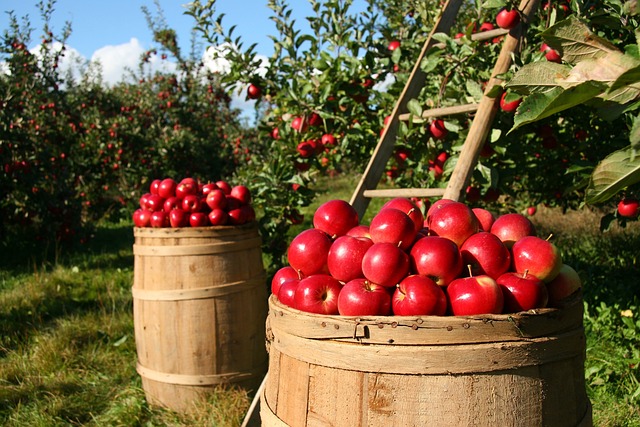Africa, often referred to as the “next frontier” for agribusiness, presents a plethora of opportunities for investors and entrepreneurs looking to tap into the continent’s rich agricultural potential.
With diverse climates, abundant natural resources, and a growing population, African countries offer a fertile ground for agribusiness ventures.
This comprehensive guide explores the various agribusiness opportunities in Africa, highlighting key sectors and factors that contribute to the continent’s agricultural growth.
Agribusiness Opportunities in African Countries: A Comprehensive Guide
Agricultural Diversity:
Africa boasts a wide range of climates, from arid deserts to tropical rainforests, providing an ideal environment for cultivating diverse crops. Understanding the local climate and soil conditions is crucial for successful agribusiness ventures. Opportunities range from staple crops like maize, rice, and cassava to high-value crops like horticulture, fruits, and medicinal plants.
Technology Integration:
In recent years, technological advancements have played a pivotal role in transforming African agriculture. The adoption of precision farming techniques, mobile applications for farm management, and the use of drones for monitoring crops have enhanced productivity and efficiency. Agribusinesses can capitalize on these technologies to streamline operations and improve overall output.
Sustainable Agriculture:
Sustainability is gaining prominence in the global agribusiness landscape, and African countries are no exception. Opportunities exist for eco-friendly farming practices, organic farming, and the production of sustainable and ethical products. This not only aligns with global consumer trends but also ensures long-term environmental and social benefits.
Agro-processing and Value Addition:
The agro-processing sector presents significant opportunities for adding value to raw agricultural products. Entrepreneurs can explore opportunities in food processing, packaging, and preservation. This adds value to the agricultural supply chain, creates employment, and opens doors for export markets.
Livestock Farming:
Livestock farming is a vital component of African agriculture, providing meat, dairy, and other by-products. Entrepreneurs can venture into sustainable livestock farming practices, including cattle, poultry, and aquaculture. With a growing middle class and changing dietary preferences, there is a rising demand for high-quality animal products.
Export Markets:
African agribusinesses can tap into international markets by complying with global standards and certifications. Exporting agricultural products such as coffee, cocoa, tea, and fresh produce can contribute significantly to foreign exchange earnings. Understanding trade regulations and establishing strong supply chains are crucial for successful market penetration.
Government Initiatives and Support:
Many African governments are recognizing the potential of agribusiness and are implementing policies to support the sector. Entrepreneurs should stay informed about government incentives, subsidies, and programs aimed at promoting agricultural development. Collaborating with governmental and non-governmental organizations can provide additional resources and support.
Which country has the best agribusiness?
It is challenging to pinpoint a single country with the “best” agribusiness, as each nation has unique strengths and challenges. However, countries like the United States, Brazil, China, and India are often recognized for their robust and diversified agribusiness sectors.
What are the challenges of agribusiness in Africa?
Agribusiness in Africa faces several challenges, including limited access to finance, inadequate infrastructure, climate change impacts, lack of modern farming techniques, and difficulties in accessing markets. Additionally, political instability and land tenure issues can pose hurdles to sustained agricultural development.
Which country is best in agriculture in Africa?
Nigeria is often considered one of the leading agricultural nations in Africa due to its large and diverse agricultural sector. The country produces a variety of crops, including cassava, yams, cocoa, and oil palm, contributing significantly to the continent’s agricultural output.
Which African country has the largest agriculture?
With its vast and diverse agricultural landscape, Nigeria is often regarded as having the largest agriculture sector in Africa. The country’s agricultural activities range from crop cultivation to livestock farming, making it a key player in the continent’s agricultural production.
What agribusiness has the highest profit?
Agribusiness sectors with high-profit potential include specialty crop production, organic farming, agro-processing, and value-added products. Livestock farming, especially poultry and aquaculture, can also be lucrative. The profitability depends on factors like market demand, efficiency, and sustainable practices.
What are the top 5 agriculture countries?
The top five agriculture countries, considering both production and export volumes, often include China, India, the United States, Brazil, and Indonesia. These nations have significant agricultural output and play pivotal roles in global food supply chains.
What is the biggest challenge in agribusiness?
One of the most significant challenges in agribusiness is achieving sustainable and efficient production while mitigating environmental impact. Balancing increased food demand with responsible resource management, addressing climate change effects, and adopting eco-friendly practices are crucial challenges.
What are the challenges of agribusiness in Nigeria?
In Nigeria, agribusiness faces challenges such as inadequate infrastructure, limited access to finance, outdated farming practices, and difficulties in accessing markets. Additionally, issues related to land tenure, inconsistent government policies, and inadequate extension services can hinder the sector’s growth.
What are three challenges that Nigeria’s agricultural sector is facing?
Nigeria’s agricultural sector faces challenges such as insufficient access to credit and finance for farmers, inadequate infrastructure for transportation and storage, and the need for improved extension services to educate farmers on modern and sustainable farming practices. These challenges, when addressed, can contribute to the sector’s growth and development.
Conclusion:
Agribusiness in African countries is ripe with opportunities for those willing to invest time, effort, and resources. From harnessing the continent’s agricultural diversity to embracing technological advancements and exploring value addition, the potential for growth is immense.
Entrepreneurs who navigate the challenges and leverage the unique strengths of each region can contribute not only to their business success but also to the overall development of African agriculture.
As the continent continues to evolve, agribusiness remains a cornerstone for sustainable economic development and prosperity.



